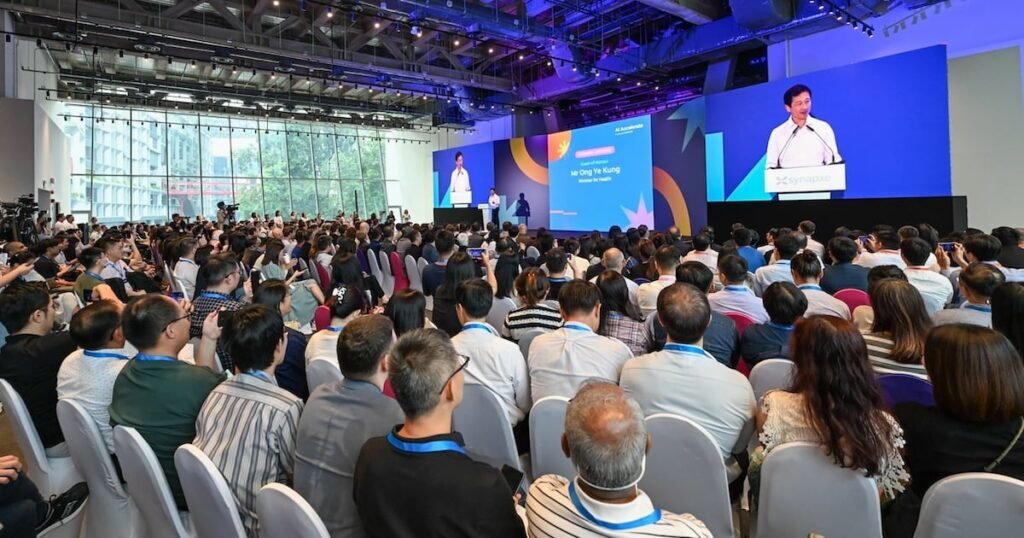Singapore’s public health system is on the cusp of a major transformation with the introduction of new AI-based applications and significant collaborations. The recent Synapxe AI conference showcased the agency’s partnerships with leading tech companies and the development of innovative AI solutions aimed at enhancing healthcare efficiency.
One of the key highlights of the conference was Synapxe’s collaboration with big tech firms like OpenAI, AIDX TECH, Databricks, and Google Cloud. These partnerships will focus on leveraging AI to streamline healthcare tasks, mitigate risks, and promote predictive care use cases. Additionally, a comprehensive initiative to upskill over 300 healthcare technology professionals in AI was announced, further solidifying Singapore’s commitment to embracing digital health technologies.
In terms of AI applications, Synapxe unveiled several new features of its medical imaging AI platform, AimSG, along with early-stage proof-of-concept tools designed to enhance healthcare services. These tools include a chest X-ray AI model for tuberculosis screening and a bone trauma interpretation AI model, both aimed at improving diagnostic accuracy and efficiency in healthcare settings.
Furthermore, Synapxe showcased the development of AI-enabled tools like ASPIRE and Synseh, which aim to revolutionize healthcare screening and personalized wellness recommendations. The agency also announced the integration of an AI-enabled conversational assistant into the HealthHub website, providing users with multilingual, personalized health information via text and voice.
In a bid to upskill the health workforce, Synapxe highlighted its genAI-based prototypes developed through competitions like AWS LLM League 2025 and the GenAIus Challenge. These initiatives have connected healthcare professionals with technology partners to develop AI solutions for real-world use cases, with a focus on enhancing patient care and operational efficiencies.
Overall, Singapore’s focus on AI innovations aligns with its broader national strategy to accelerate genAI integration within public healthcare institutions. With a $150 million investment in AI technology, the government aims to improve patient care, reduce administrative burdens, and empower healthcare professionals through responsible use of AI.
In conclusion, the advancements in AI technology are poised to revolutionize Singapore’s public health system, paving the way for a more efficient, personalized, and innovative approach to healthcare delivery. With strategic collaborations and cutting-edge AI applications, Singapore is set to lead the way in harnessing the power of AI for the benefit of all.


